Main Menu
Latest Blog Entry
User login
Best books of 2021
It’s the time of year where I reflect on what I have read so far and share my best books of 2021. These have included some stone-cold classics, some long-forgotten gems, some new thinking and only a few duds.
I am selective in what I read: time, like The One Ring, is precious. I have a few trusted bibliophiles who recommend what to read and I mix that books derived from a trail of reading essays and journals and the always good book section in The Big Issue.
It’s hard to recommend one or two books, so I shall split them up into sections, the full list with a short summary is at the bottom. The lists are biased towards those books that are well written, i.e. original, concise, use relevant examples and often just because they are humourous.
Top 5 Fiction Books
- Fishmonger’s Riddle: A.E. Coppard. A collection of wonderful short stories set mostly in 1920s rural England. Coppard is a master storyteller.
- Island: Alistair MacLeod. A sublime collection of short stories set in Cape Breton, Canada. Wonderful prose, rich story telling about a time not so far past but seems like it has gone forever.
- Animal Farm: George Orwell. Too close to the bone with the current political climate but what a masterpiece.
- Dune: Frank Herbert. Epic SF novel that I last read 35 years ago. It starts of brilliantly but fizzles out in the last 50 pages.
- We: Yevgeny Zamaytin. Dystopian novel set centuries into the future where the population’s every hour is scripted. Written in the 1920s, it is frighteningly prescient.
(No, Don Quixote and Middlemarch didn’t make my top 5. These are my choices not what I think I should be seen to recommend!)
Top 5 Thinking/Ideas
- If You Should Fail: Joe Moran. A refreshing read about how life cannot be measured as a success or failure. Life is for living, with it’s ups and downs. Great examples, well referenced and concise. A welcome change from all the ‘you can do it if you try hard enough‘ pick-me-up books.
- Think Again: Adam Grant. Ideas on how to rethink what we do and how we think. Well laid out with useful anecdotes and examples. It shows the difference between arrogance and curiosity as well as how to develop our analytical skills.
- Essays: George Orwell. The Everyman edition of Orwell’s essays for The Tribune and elsewhere. Huge and varied, always interesting. A ‘dip in and read’ type book and one to keep.
- End State: 9 Ways Society Is Broken and How We Fix It.: James Plunkett. Thought provoking, non-partisan and optimistic. Worth reading if you want to try and improve your community.
- How To Read Numbers: Tom Chivers & David Chivers. Superb, readable and relevant book about understanding statistics and how they are manipulated. 22 short chapters that are well illustrated and explained. A keeper.
Top 5 books if you like quality writing
- A Swim in a Pond in the Rain: George Saunders. A brilliant book that analyses seven Russian short-stories and gives thoughts on how that transfers to other writing. Very clear, and pertinent points that would make dense reading if not broken up by the stories. Enjoyable.
- Nomadland: Jessica Bruder. Investigative, embedded journalism about the disenfranchised citizens of modern day USA. Superbly written, well-researched. Unputdownable.
- The Contemporary American Essay: Ed. Phillip Lopate. Lots of great writing by different authors in this 600 page book. I loved reading the different experiences and ideas that people have. Highly recommended.
- Creating Short Fiction: Damon Knight. A very practical book that has useful writing exercises in each section. The deceased author wrote lots of SF. His points are articulate, relevant and often humorous.
- Yeager: Chuck Yeager & Leo Janos. Page-turning, ripping yarn that details a life well-lived. Fantastic read about an amazing individual who took advantage of every opportunity that came his way.
The Full List of books I have read in 2021 with synopsis
- Don Quixote de la Mancha: Miguel Cervantes. Epic, dense novel that is worth the time invested into reading it. Funny,revealing and surprisingly relevant today.
- Solutions for Novelists: Sol Stein. Extremely useful book about creating novels that have pace, character and conflict. Stein breaks down the information clearly and uses extracts to illustrate his points. Very good.
- The Old Ways: Robert MacFarlane. A description of several walks, and two sea voyages, that the author took on his own or accompanied by others. Not what I thought it was going to be. The writing is good but the book lacks a common thread.
- Dreams and Wishes: Susan Cooper. A collection of lectures that the author gave from 1976 to 1994. The Dark is Rising is prominent in most, so fans might like it. The love of story telling and language and the importance of giving our children a chance to read is prevalent.
- The Complete Walker IV: Colin Fletcher and Chip Rawlins. Funny and informative, this extensive guide to all things walking from 2002 has dated only in some of the equipment reviews. The underlying principles of how to look after yourself and what to take, are well written. The authors use their vast experience to detail what is important, and what is less so.
- Keep the Aspidistra Flying: George Orwell. Interesting and funny novel about a self-destructive man who doesn’t want to take part in capitalism.
- Team of Rivals: The Political Genius of Abraham Lincoln. Doris Kearns Goodwin. A tremendous book that is rich in detail and research. It offers many lessons to be learned from Lincoln although few people could be as magnanimous.
- Island: Alistair MacLeod. A sublime collection of short stories set in Cape Breton, Canada. Wonderful prose, rich story telling about a time not so far past but seems like it has gone forever.
- Mr Norris Changes Trains: Christopher Isherwood. A novel set in 1930s Germany. I disliked all the characters and forced myself through the book. The turmoil in the background is interesting though.
- The Redemption of Galen Pike: Carys Davies. A short story collection, one of which was expanded to become. ‘West.’ Whimsical but realistic and a joy to read.
- Skill in Sport: B. Knapp. An old one, but a good one. ‘Skill’ research here was based on a lot of simplistic tasks, but Knapp gives a clear overview on some sound teaching practices.
- A Swim in a Pond in the Rain: George Saunders. A brilliant book that analyses seven Russian short-stories and gives thoughts on how that transfers to other writing. Very clear, and pertinent points that would make dense reading if not broken up by the stories. Enjoyable.
- No Great Mischief: Alistair MacLeod. Wonderful, albeit sentimental, novel about Scottish Canadians in the present and their history. Thought provoking.
- More Penguin Science Fiction: Ed. Brian Aldiss. Short story collection published in 1963. Authors include Asimov, Gordon R. Dickson and Harry Harrison. Of it’s time with communists and nuclear Armageddon featuring in several stories. Great collection.
- Prisoners of Geography: Tim Marshall. How geography has affected the development of nations and its impact economically. Interesting overview.
- Essays: George Orwell. The Everyman edition of Orwell’s essays for The Tribune and elsewhere. Huge and varied, always interesting. A ‘dip in and read’ type book and one to keep.
- New Writing in Europe: John Lehmann. A summary of fiction in the 1920s to 1930s and thoughts on the novelists.
- The Body Builder: B.Deane Brink. A collection of notes and essays about Robert J. Roberts who was a pioneer of physical fitness in the YMCA in the nineteenth century. Short, but some good ideas in there.
- Attempts: Dan John. A collection of essays and blogs about training and managing life. I haven’t read much from John for 10 years, very few new ideas, but a good read. He communicates very well.
- Animal Farm: George Orwell. Too close to the bone with the current political climate but what a masterpiece.
- Free Play: Brian McCormick. A series of newspaper articles covering coaching topics such as as LTAD, early-specialisation and parenting of ‘talented’ sportspeople. Very good advice, well written with great examples.
- Burmese Days: George Orwell. A novel set in pre-war Burma that is rich in detail of ex-patriot life.
- A Clergyman’s Daughter: George Orwell. Easy to read, more like a sequence of diatribes against poverty, religion and the exploitation of workers in agricultural Britain.
- The Wild Silence: Raynor Winn. Disappointing follow up to ‘The Salt Path’. Some good sections but disjointed with little narrative structure.
- The Burning Room: Michael Connelly. A reread of a detective novel featuring Harry Bosch.
- Final Words: Kelvin Giles. A collection of stimulating blog posts and ideas about coaching. Has given me food for thought.
- Coming Up For Air: George Orwell. A despondent first-person novel about a middle-aged fat man who becomes nostalgic for his youth and mulls over his life so far. Set in 1938 it portrays the build-up to war and the horror well.
- Move: Caroline Williams. A great overview of the benefits of moving: well -researched and well-written. It covers strength, learning, dance, breathing and stretching. All the things we do normally. Worth having.
- Anatomy, Mechanics and Human Motion: J.G. Hay & J. G. Reid. A 1988 edition that has some excellent basic principles but is a bit outdated in the conclusions of the limited research.
- Total Recall: Arnold Schwarzenegger. The second time I have read his gripping autobiography. The parts about his early life and hunger to succeed are excellent. He skates over his obvious flaws but it is interesting to see his terms as the Governator in light of recent politics.
- Arnold: The Education of a Bodybuilder: Arnold Schwarzenegger & Douglas Kent Hall. The 1988 version which is half biography and half training tips. The raw energy and confidence oozes from the book that has surprisingly good common sense training advice.
- Physical Intelligence: Scott Grafton. A well researched, well written book about neuroscience and physical activity. Grafton uses his hiking expedition to illustrate the points about how and why our brains and bodies have developed together. Very good.
- The Spy Who Came In From The Cold: John le Carre. Classic Cold War spy thriller. The clarity and simplicity of the writing is deceptive. Very good.
- Natives: Race & Class in the Ruins of Empire: Akala. An account of British history and race relations in modern Britain from the perspective of a Scots-Caribbean man. Aklala references a slew of non-mainstream, but accurate and relevant, sources. Thought provoking.
- Dune: Frank Herbert. Epic SF novel that I last read 35 years ago. It starts of brilliantly but fizzles out in the last 50 pages.
- Mastery: George Leonard. A super little book that has a lot of advice. It sways a bit too much into Eastern pseudo-zen towards the end, but there is plenty to take from it otherwise.
- Exhalation: Ted Chiang. A collection of SF short stories, some of which are fantastic. Quality writing and thought provoking ideas.
- Yeager: Chuck Yeager & Leo Janos. Page-turning, ripping yarn that details a life well-lived. Fantastic read about an amazing individual who took advantage of every opportunity that came his way.
- Bookseller’s Tales: Martin Latham. A mixed bag of semi-autobiographical anecdotes that are interesting with historical and cultural accounts that are less so. Got better as it went on.
- How To Read Numbers: Tom Chivers & David Chivers. Superb, readable and relevant book about understanding statistics and how they are manipulated. 22 short chapters that are well illustrated and explained.
- Everest: Harriet Tuckey. A detailed, well-researched account of Griffith Pugh and his endeavours about researching human physiology. Written by his estranged daughter, it is a warts-and-all biography that pulls no punches. Fascinating because it details the human side as well as the science side.
- The Haunting of Hill House: Shirley Jackson. Classic thriller about the spiritual and psychological horror affecting guests in a house.
- Middlemarch: George Eliot. A very long novel that has some interesting characters. It was a good holiday read but I didn’t think it was life-changing.
- Sapiens: Yuval Noah Harari. Interesting overview of the human race’s evolution through social, industrial and agricultural revolutions. Puts a lot of ideas about happiness and progress into context.
- Arrival: Ted Chiang. An eclectic collection of SF short-stories some of which are superb.
- The Egoist: George Meredith. A long Victorian novel that was hard-going. Too much narration and explanation with little action. A real effort to get through this.
- Roadside Picnic: Arkady & Boris Strugatsky. Classic SF novel about humans dealing with aliens’ waste.
- Take Your Eye Off The ball 2.0: Pat Kirwan. In depth look at what to watch for during an NFL game. I was lucky enough to grow up with John Madden as the commentator of my youth. This book is a good start for those unfamiliar with the game.
- Fishmonger’s Riddle: A.E. Coppard. A collection of wonderful short stories set mostly in 1920s rural England. Coppard is a master storyteller.
- Raised From the Ground: Jose Saramago. A moving novel about the oppression of rural workers in Portugal. Similar themes to Grapes of Wrath but different style.
- Think Again: Adam Grant. Ideas on how to rethink what we do and how we think. Well laid out with useful anecdotes and examples. It shows the difference between arrogance and curiosity as well as how to develop our analytical skills.
- Nomadland: Jessica Bruder. Investigative, embedded journalism about the disenfranchised citizens of modern day USA. Superbly written, well-researched. Unputdownable.
- Essays One: Lydia Davis. Large volume on varied topics of reading, writing and observation of the author’s surroundings. Stimulating and rewarding.
- We: Yevgeny Zamaytin. Dystopian novel set centuries into the future where the population’s every hour is scripted. Written in the 1920s, it is frighteningly prescient.
- No Time To Spare: Ursula Le Guin. Disappointing collection of blog posts. Some good paragraphs, but not worth buying.
- The Power of Geography: Tim Marshall. An excellent overview of countries and regions in the world that are affected by their geography. It gives an overview of the past and how this could potentially impact the future. Insightful.
- A Secret History of Time to Come: Robie Macauley. Dystopian novel set a few hundred years after the USA was torn apart by race wars. A good, futuristic western.
- The Creative Habit: Twyla Tharp. Interesting ideas on how to get into the creative mode and stick with it. Written from a dance/choreography perspective but relevant for anyone else looking to create.
- Dangerous Visions 2: Ed. Harlan Ellison. Collection of SF short stories written in the 1960s.
- Barca: Simon Kuper. Very well- researched book looking at the rise and decline of Barcelona FC. Good interviews and analysis, no rose-tinted spectacles here.
- Shuggie Bain: Douglas Stuart. Booker winning novel set in Glasgow in the 1980s. Bleak, grim and a bit too close to home for me.
- The Contemporary American Essay: Ed. Phillip Lopate. Lots of great writing by different authors in this 600 page book. I loved reading the different experiences and ideas that people have. Highly recommended.
- Creating Short Fiction: Damon Knight. A very practical book that has useful writing exercises in each section. The deceased author wrote lots of SF. His points are articulate, relevant and often humorous.
- Negroland: Margo Jefferson. Disappointing extrapolation of an excellent essay that I had recently read. Interesting subject matter but I tired of the style.
- End State: 9 Ways Society Is Broken and How We Fix It.: James Plunkett. Thought provoking, non-partisan and optimistic. Worth reading if you want to try and improve your community.
- Collected stories: John Cheever. There are some superb stories in here including, ‘The Swimmer.’ However, at 900 pages, I had to take a break a few times because there are only so many stories about suburbia one can take at a time.
- If You Should Fail: Joe Moran. A refreshing read about how life cannot be measured as a success or failure. Life is for living, with it’s ups and downs. Great examples, well referenced and concise. A welcome change from all the ‘you can do it if you try hard enough’ pick-me-up books.
Thank you
Thanks to the usual suspects who have lent, given, or recommended books to me: The Hayridge Library (thankfully reopened), Mandi Abrahams of Castle Books, Anglesey, Chris Fotheringham, Vern Gambetta and Andy Stone.
Also, thanks to LiznoJan Books, Burway Books and Blackwells, Oxford for just being there.
If you have a recommendation, please leave in the comments section below. Thank you for reading.
Client Testimonials
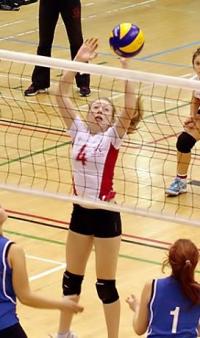 Helen Farr
Helen Farr
The access to expert advice on training and coaching in the STS has been extremely beneficial when guiding Helen (15) through different stages of her physical development. Time is very precious and especially as busy parents of even busier teenagers, we need all the help we can get. As well as following the programme, it has been really useful to dip into certain topics as and when situations occur. Advice on how to prevent and counteract knee problems was certainly helpful when Helen started complaining that ‘her knees were hurting’ directly after competitions.
More


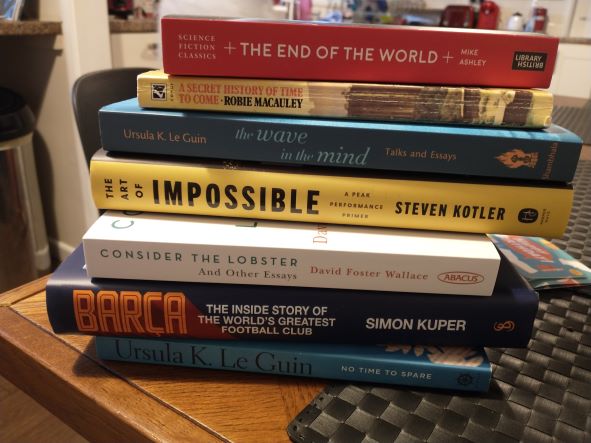
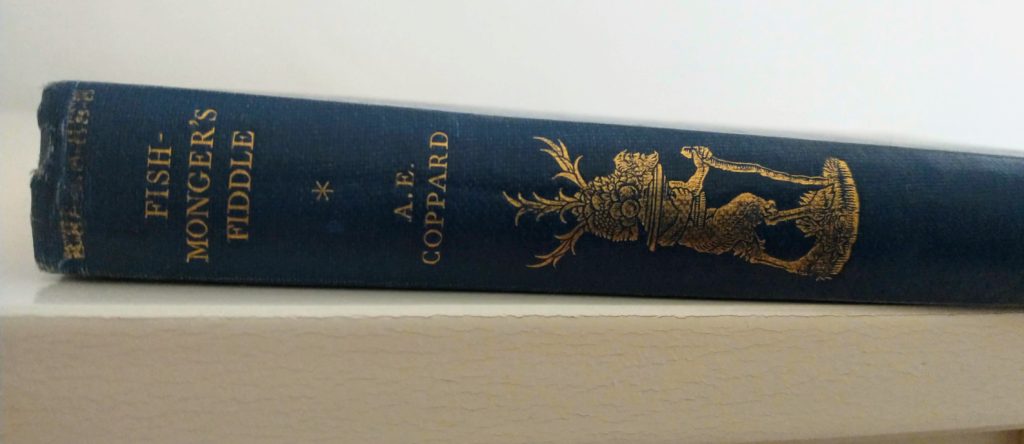
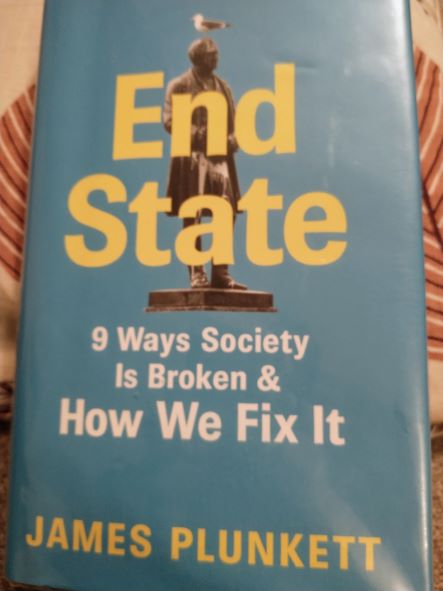
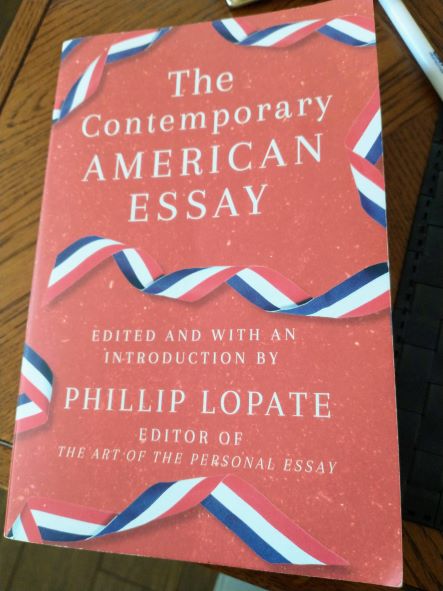
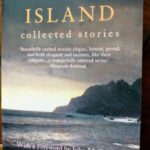
Comments
My 2021 book discovery digs into a research that started in Harvard in the 1970s on meditation and how the challenge of understanding and showing how the brain changes brings occidental and oriental worlds together to take the best out of both. To me -50 years later- it’s helped set the foundations of terms like neuroscience and emotional intelligence.
The science of mediation. By Richardson and Goleman
Thanks for sharing, Patricia.